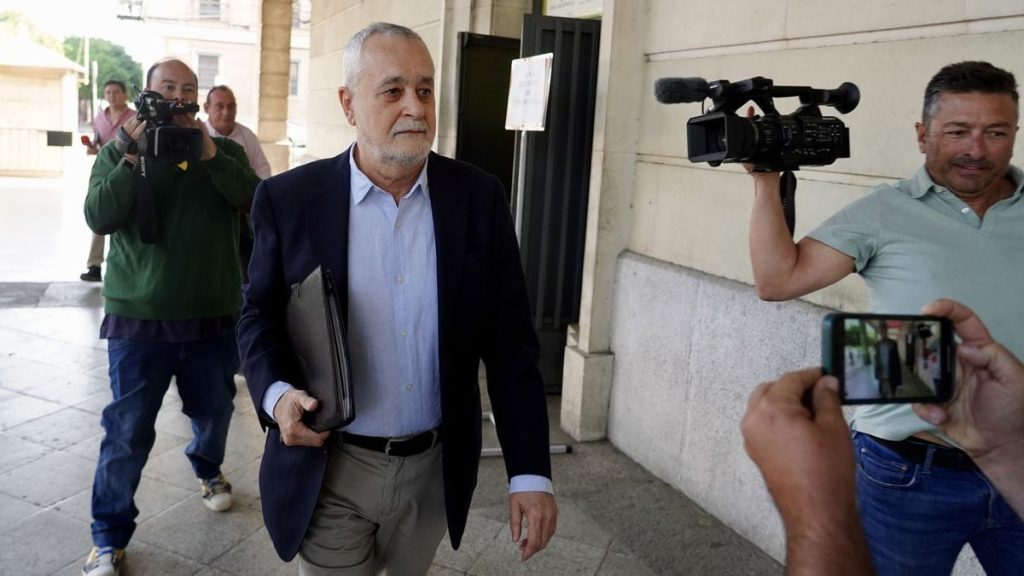The Anti-Corruption Prosecutor’s Office has stated that the eight former high-ranking officials of the Andalusian Regional Government, including former president José Antonio Griñán, who were convicted of embezzlement in the ERE political case, do not meet the conditions for a pardon. In a report requested by the Provincial Court of Seville, which is responsible for deciding on the pardon, the prosecution opposes all arguments presented by the applicants and concludes that “the behavior in question cannot go unpunished by partially commuting the prison sentence” because it “exceeds the exceptional nature that characterizes the grace of a pardon.” The Anti-Corruption Prosecutor’s Office argues that none of the reasons put forward by the convicted former high-ranking officials “are related to the nature and purpose of the pardon institute.”
In response to the argument that the convicted officials did not personally profit from their actions, the Prosecutor’s Office points out that their criminal conduct “has been judged fairly” within the framework of the crimes they were charged with, which do not require personal financial gain. Regarding the claim of undue delays in a process that lasted 13 years from investigation to sentencing, the prosecution states that “none of the rulings mention the presence of delays” considering the complexity of the case. The argument based on the personal and professional integrity of the convicted officials is also scrutinized by the prosecution, which questions their honesty and integrity due to their conviction for serious offenses within the public administration.
The prosecution argues that the embezzlement committed undermined public trust in the honest management of public funds and violated the probity expected of public officials. The fact that the convicted officials had access to budgetary credits to grant illegal aid totaling 427 million euros further supports the Prosecutor’s conclusion that a pardon for Griñán and the other seven former high-ranking officials is not justified due to the seriousness of the offenses committed. The prosecution emphasizes that commutation of the prison sentence exceeds the exceptional nature of a pardon, and the retributive, preventive, and rehabilitative purposes of the sentences do not warrant or allow for a partial pardon.
The decision on whether to grant a pardon to the convicted former high-ranking officials of the Andalusian Regional Government lies with the Court of Seville, which imposed the sentences in November 2019. The Court will consider the Anti-Corruption Prosecutor’s report, requested in late January, as well as the opinion of the Andalusian Regional Government, which supported recovering the embezzled funds. The Court will also review the criminal records of the convicted officials, the portion of their sentence already served, and their behavior in prison. One of the convicted officials, Juan Márquez, had his sentence reduced by the Supreme Court, so his pardon will be decided by that court, while the remaining eight depend on the Court of Seville’s decision.
In summary, the Anti-Corruption Prosecutor’s Office opposes granting a pardon to the convicted former high-ranking officials of the Andalusian Regional Government due to the seriousness of the offenses committed, the lack of personal gain not justifying leniency, the absence of undue delays in the legal process, and the violation of public trust and probity expected of public officials. The decision on whether to grant a pardon will rest with the Court of Seville, which will review all relevant information before making a determination.


